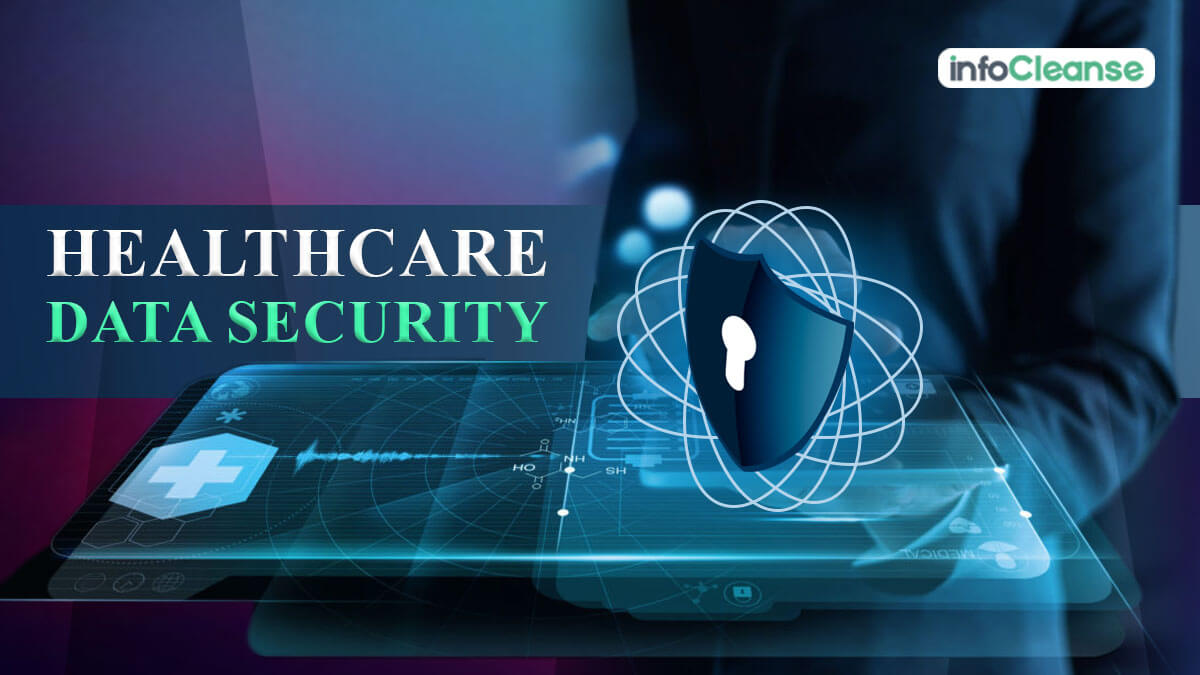
In a world where data security and privacy have become a significant concern for everyone, how far would you go to secure your data?
Medical facilities thrive on data. From B2B contacts to sensitive patient information, healthcare providers deal with bulks of data. However, they seldom have the tools to secure that data from harmful viruses and security breaches.
Thus, healthcare data security has become a critical pressure point for medical facilities.
Hence, many healthcare organizations take extreme measures to protect their data.
Read on to find out what challenges you can face in healthcare data security and what are some effective solutions to counter them.
At first glance, it may not be obvious how crucial medical data is. However, it holds immense value in the black market and dark web.
Medical records contain Personal Health Information (PHI), which has a higher value on the dark web than other information. They are considered more valuable than credit card information. Hence, cybercriminals get a higher incentive to steal from medical databases.
Some ways in which medical records are misused include:
The healthcare provider is responsible for the data in their records. So, they will be held liable for any leaks. Breaches in healthcare data security can result in fines and costly lawsuits for the healthcare provider.
A survey was conducted in 2021 for healthcare data security threats across 30 countries. It revealed some concerning statistics:
With such dire numbers, let us look at the major challenges.
Ransomware involves stealing data and leveraging it for ransom. In the past, the challenge was not being able to pay the ransom. However, in recent years, a new threat has emerged.
According to the numbers above, only 69% of the companies that paid the ransom were able to recover their data. So, even if you manage to pay the amount, there is a chance you will never get your data back.
Ransomware can infiltrate healthcare systems through:
Errors on behalf of the employees can lead to significant repercussions. Often, unaware employees make worrisome mistakes like:
Such errors leave data exposed to cyber attacks and compromise healthcare data security.
Healthcare providers who continue to use legacy software leave their data vulnerable to cyber attacks. Not updating your systems with regular security patches makes it easy for cyber criminals to find a way in.
You also need to update your hardware constantly. This is because outdated hardware blocks the installation of new software. Hence, a security bottleneck appears to be forming.
However, just using the latest technology is not enough.
Many providers have become cloud users for better data privacy. But the shift has to be made in a way that can genuinely counter data security threats.
Clouds come with their own set of challenges:
The only way to secure your data is to follow the best healthcare data security practices. There are many different solutions you can use as per your requirements. Some are discussed below:
Data management in healthcare should be done such that it is:
Implementing data access levels minimizes the risk of unauthorized access. It can also eliminate the chances of accidental data loss.
You can also add an extra layer of protection by introducing a system of tags. For this:
Using tags, your system can identify sensitive files and prevent certain activities like copying or erasing.
Mobile devices and apps are being used for tracking various health activities like insulin pumps and blood sugar levels. These apps are responsible for a lot of data collection.
Hence, it is important to secure the databases linked to them using various IoT devices. Regular security updates on your mobile phone are also crucial for data security in such cases.
Employee errors play a massive role in data leaks. Hence, training your employees is essential for healthcare data security.
You should inform your employees about:
This is by far one of the best security measures you can implement.
With so many viruses plaguing your databases, we should not forget the primary antivirus software. It protects against:
Healthcare data security is vital in modern times. As cyber attacks on healthcare systems become more frequent, data protection emerges as the need of modern times.
Many healthcare facilities opt for custom security frameworks. The efforts to protect data are intensifying with time.
As Dame Dido Harding says,
“We have to keep building our security walls higher and higher because these cyber criminals are building longer and longer ladders.”
Enterprises today navigate a complex business landscape combined with rapid technological evolution and fierce competition.…
In the ever-evolving B2B ecosystem, staying ahead of the curve is becoming a matter of…
From time immemorial, lawyers have played a crucial role in shaping our social fabric. With…
A pioneer in the automotive industry, the USA was the first country in the world…
The global software spectrum is so diverse and versatile that there is never any dearth…
What is the first thing that crosses your mind while visualizing a healthcare facility? The…